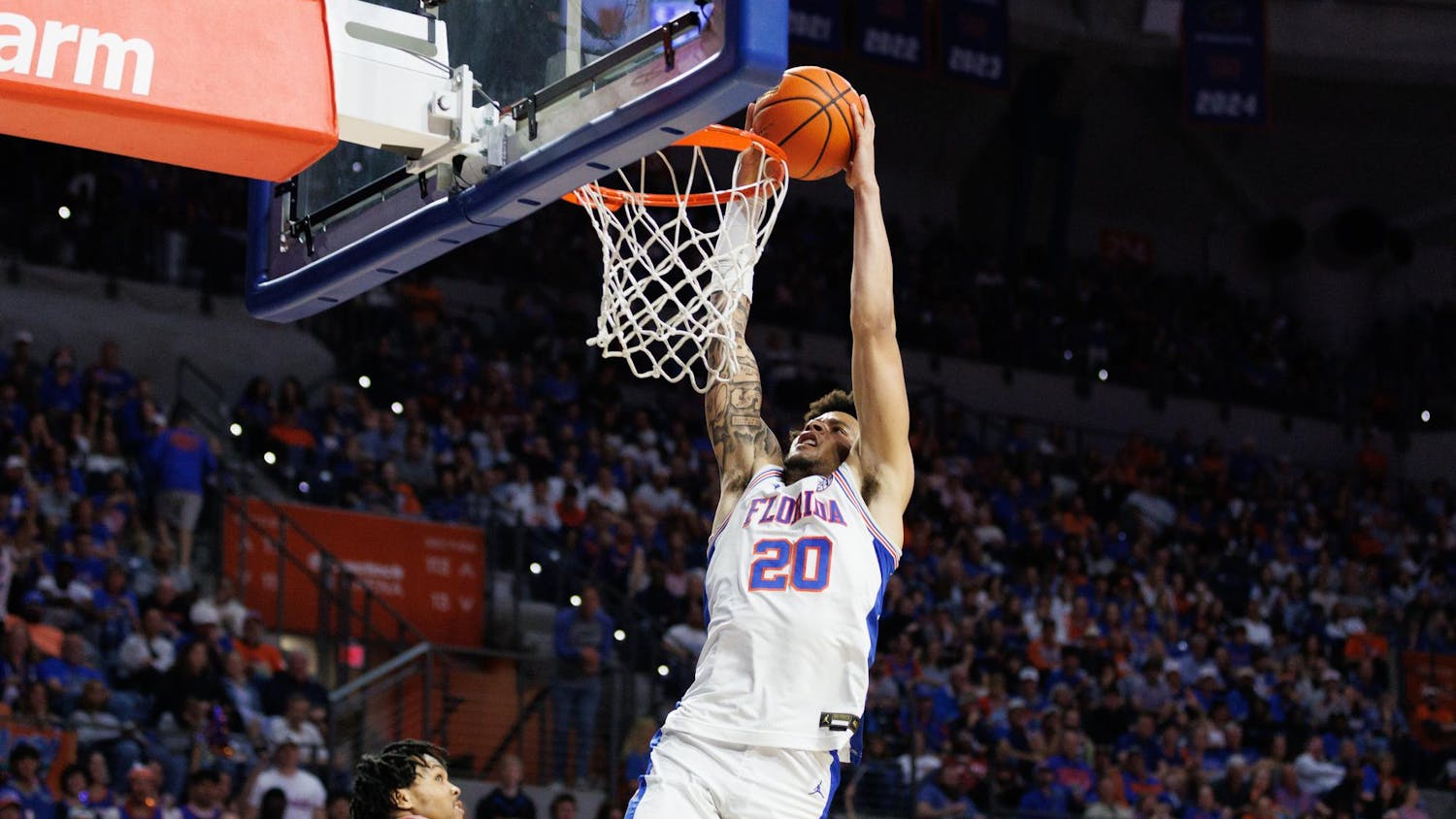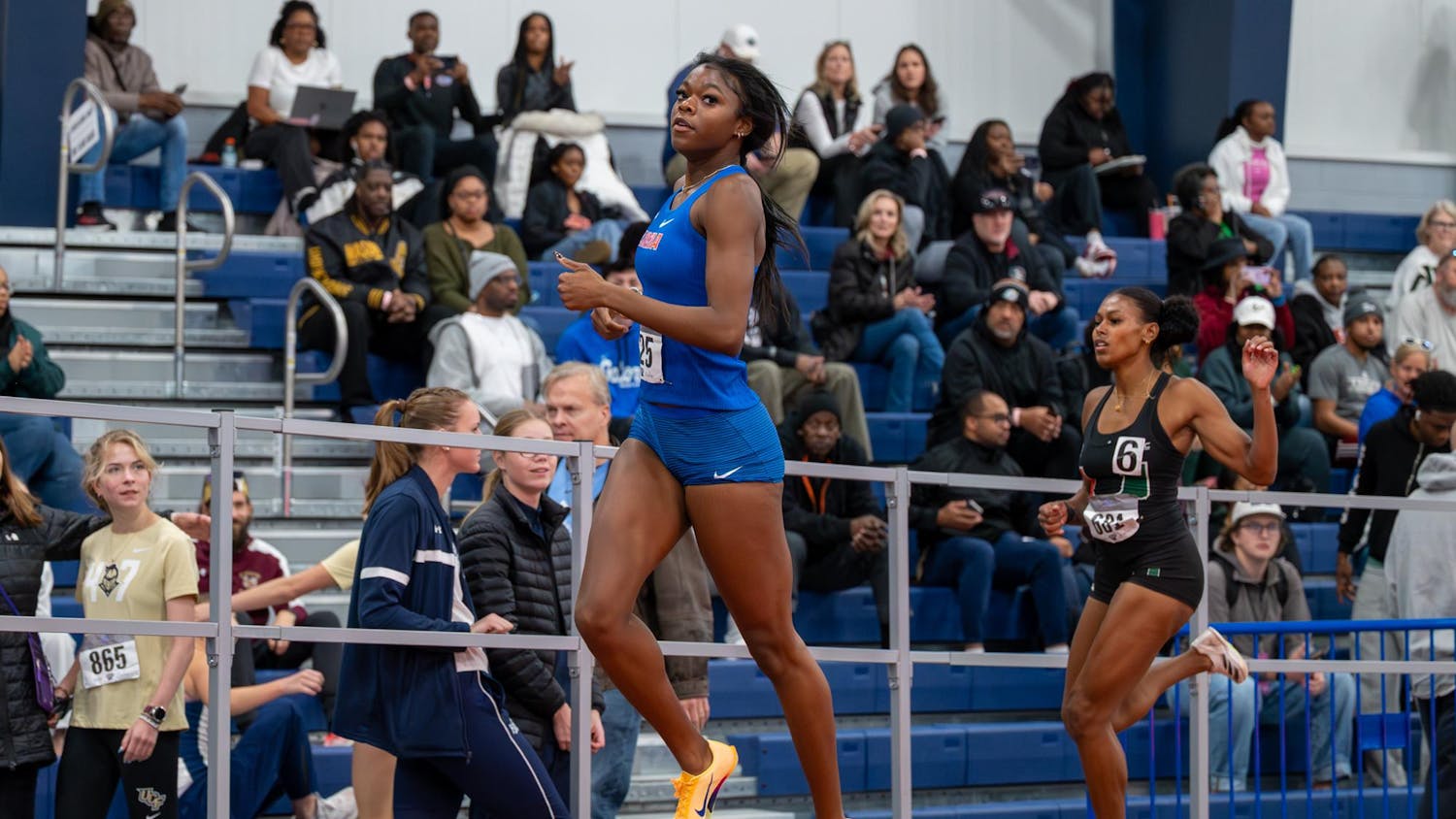| Student Jobs | Top ↑ |
|
Whether you're an English or journalism major looking for clips, a Web designer looking for a site, or an amateur commentator looking for an audience, the Alligator can help you get there. Here are some of the entry-level opportunities at the Alligator. Advertising Intern If you're looking for real-world experience in selling advertising, developing relationships with customers and laying out ads, consider applying for an internship in the Alligator's advertising department. The advertising department is critical to the Alligator because the paper runs solely on ad revenue. We ask that you make a two-semester commitment if you decide to apply for an internship in advertising. Working 12 to 15 hours a week, interns attend training sessions and are paired with a sales representative to learn the basics of Alligator advertising for a semester. With this preparation, interns go on to become paid sales representatives for a semester. The advertising department usually hires interns during the first two weeks of the semester, but positions may be open any time. To apply, contact the intern coordinator at 376-4482 during business hours or at advertising@alligator.org. Columnist Everyone has an opinion, but few people make good columnists. But if you keep up with the news and have fresh insight into what's happening, then you should consider applying to be a columnist. They usually write on a theme and from a certain perspective, such as a liberal or a conservative, and publish their column on a certain day of the week. Successful columnists are fresh, fun and guaranteed to gain a wide readership. To apply for a columnist position, talk to the opinions editor at the beginning of the semester. Copy Editor As a copy editor, you'll ensure the accuracy of stories. The responsibility that comes with copy editing is sure to help you in future endeavors whether they might be graduate school or an editing internship. Copy editors work late, from 5 p.m. to about midnight, and are paid by the shift. If you're interested in working as a copy editor, stop by to take the copy editing test, which covers Associated Press style, spelling, grammar and fact checking skills. You do not need to be a journalism major, but knowing AP Style is a must. Contact the copy desk chief about positions available. Production Staff Production staff includes graphic designers and layout designers. Graphic designers make the paper every day, creating advertising during the day and laying out the news at night. If you are considering a career in graphic design at the Alligator you develop should have a grasp of programs such as Adobe InDesign, Photoshop and Illustrator. All graphic design positions are paid by the hour and may also get internship credit if they arrange it with their professors. Ad graphic designers, who work during the day, have flexible hours that are built around their schedules. News graphic designers, who lay out the content of the paper at night, work various shifts between 6 p.m. and 1 a.m. Graphic designers are usually hired and trained at the end of a semester in preparation for the next. If you're interested in a production job, fill out an application at the Alligator office at 1105 W. University Ave between the hours of 9 a.m. and 4 p.m. Photographer Student photographers' level of involvement at the Alligator is largely up to them. By being available and reliable and consistently submitting feature photos, photographers can get the clips and experience they need to land a great job or internship after college. Most photographers are not paid and work on a contributing basis with their own equipment. Bring in a portfolio of your work or some feature photos to show the editor. Also, you must be able to write good, accurate cutlines. Writer Whether you're looking to try your hand at reporting and writing or just looking for extra credit in your reporting class, the Alligator can help. The Alligator has three kinds of writers. Most people start as a freelance writer, also called a stringer. They contribute stories from their own ideas or from assignments from the freelance editor. These writers are unpaid and have the smallest responsibility and time commitment. Once on staff, you might start as a general assignment writer, who works sort of like a paid freelance writer on assignments from a news editor. These writers receive a stipend every two weeks and are expected to write two to five stories each week. Last, beat writers are the Alligator's best writers and are responsible for covering some aspect of the news, such as cops, Greek life, Student Government or city politics. These writers are expected to write three to five stories each week and keep up with the goings on of their beat. They get paid every two weeks. If you're interested in writing, fill out an application and stop by the Alligator office with some writing samples, a resume and possibly a cover letter to talk to an editor. A good place to start is the freelance editor. Check the Contact Us page for contact information.
|
|
| Submitting A Story | Top ↑ |
|
1. To find stories the Alligator would be interested in, you'll need to get a sense of what's newsworthy for the Alligator's audience (UF students). Remember the factors of newsworthiness: timeliness, proximity, weirdness/rarity, future impact, prominence, conflict, scope, consequence and human interest. 2. First, set yourself a deadline that will work within the Alligator's deadlines. If you want to write a story about an event that's happening at 7 p.m., you must contact the freelance editor or another editor by 5 p.m. to ask him or her if the Alligator is interested in the story. Late story deadline is at 9 p.m., so you need to be able to write quickly if you are covering late events. For all other stories, you must send an electronic copy to the Alligator by 5 p.m. to give the editors time to look it over. 3. We write and edit with Google Docs, so any file type compatible with that will work fine, but we strongly recommend .doc or .docx. 4. For your byline, put your name in all caps. On a line underneath that, type "Alligator Contributing Writer." Then type your phone number, so editors can call you with questions. If you don't include your phone number either on your story or in the email you send with your story attached, your story will not go in the paper. We need your contact info. 5. Email your story to freelance@alligator.org. Include your name, what class you're in (Multimedia Writing or Reporting, or nothing if you're not in either), a little bit about the story, any time constraints it has and, of course, your phone number. Attach your story as a Word document or paste it into the body of the email. 6. At 5 p.m., the editors of the Alligator convene to discuss the day's stories and photos and decide which stories are going on which pages and at what length. If your story is running in the next day's paper, you'll get a call about 6 p.m. asking you to come in and read the story over with the editor. After a section editor reads the story, it goes to copy desk. The copy editor assigned to your story will read through it and check all the facts he or she can, including name spelling, titles and names of places. You may get a call from a copy editor even after you've finished editing it with your section editor.
|
|





